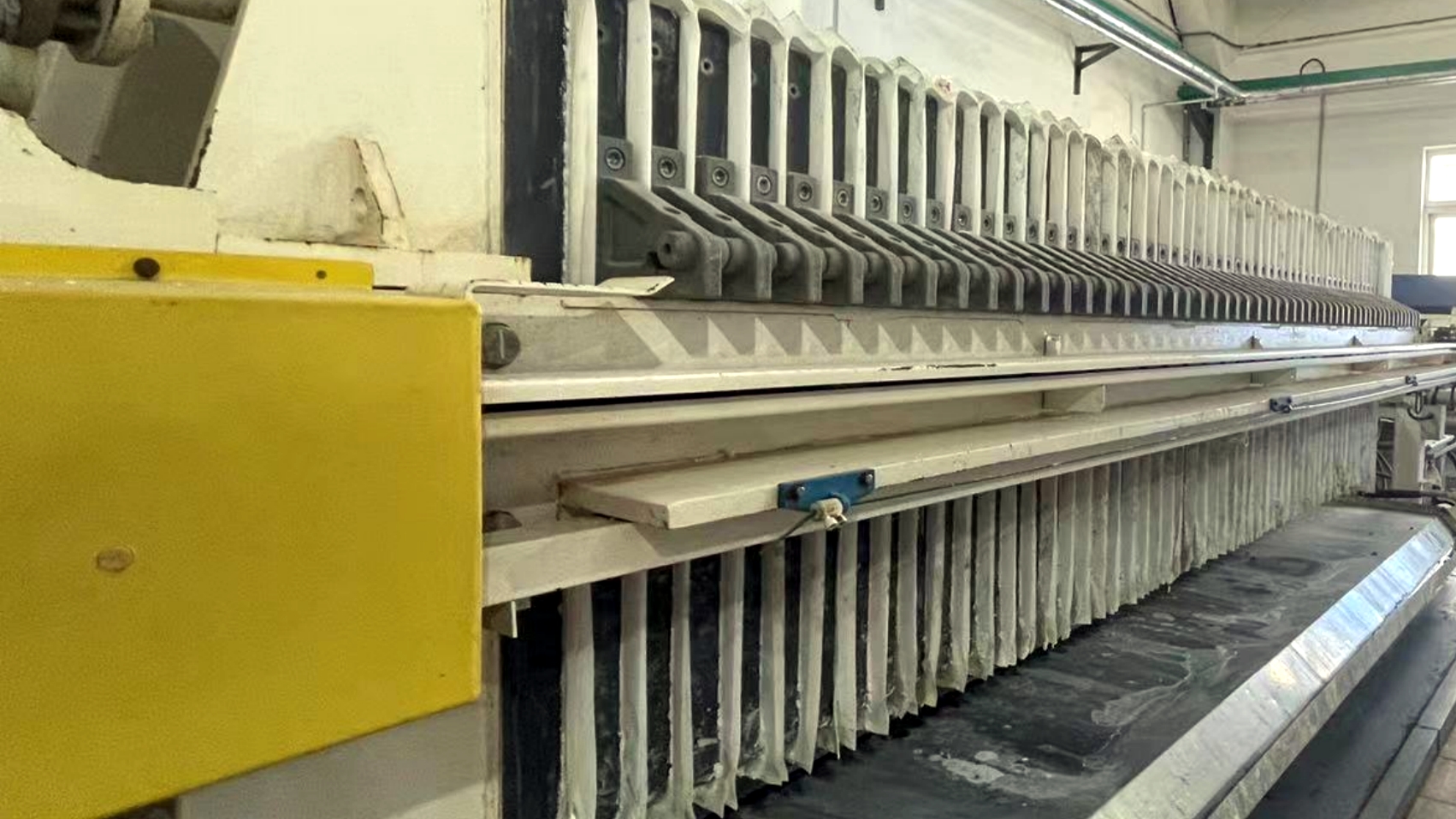
Filter press filter cloth plays a key role in sludge treatment, mainly used in filter presses to achieve solid-liquid separation of sludge. The following are its specific applications and technical points:
1. Core function
Solid-liquid separation: The filter cloth acts as a filter media. Under the high pressure of a filter press, water in the sludge is discharged through the filter cloth while solid particles are retained, forming a mud cake.
Determine the filtration efficiency: The pore size, material and air permeability of the filter cloth directly affect the filtration speed, cake moisture content and clarity of the filtrate.
2. Classic Applications
Municipal sewage treatment plants: Dewatering of biological sludge requires filter cloths that are resistant to organic corrosion.
Industrial sludge (electroplating, dyeing, mining): Materials resistant to heavy metals or chemical reagents must be selected.
Highly viscous sludge: Smooth filter press cloths may be required to reduce adhesion.

3. Optimization measures in use
Pre-treatment: Add flocculants to improve sludge dewatering performance.
Maintenance: Regular high-pressure water washing to prevent blockages. Acid-alkali cleaning (e.g. oxalic acid to remove rust, NaOH to remove organic dirt).
Fault handling: Filter press cloths must be replaced immediately when damaged and causing sludge leakage. Local damage can be temporarily repaired.
4. Technological developments
New filter cloth: such as composite membrane filter cloth (with PTFE membrane coating on the surface), which can achieve a lower moisture content (<50%).
Automated cleaning system: integrated ultrasonic cleaning extends the service life of the filter cloth.
5. Economic considerations
Through reasonable selection and maintenance, plate and frame filter cloth can significantly improve sludge dewatering efficiency and reduce subsequent disposal costs (such as incineration or landfill fees). In practical applications, parameters need to be adjusted based on sludge characteristics.